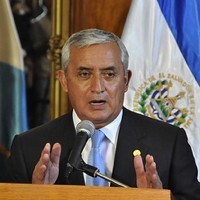On March 24, Central American leaders will take a decisive step toward opening the debate on drug decriminalization by convening in Antigua, Guatemala, to discuss alternatives to the foundering war on drugs. The meeting, proposed by Guatemalan ex-general and newest member of the Central American presidents’ club Otto Pérez Molina, follows a five-country tour by his vice president to rally support for frank dialogue. It also comes on the heels of regional visits by U.S. Secretary of Homeland Security Janet Napolitano and Vice President Joe Biden to reinforce the United States’ commitment to anti-crime cooperation and rebuff the possibility of legalization.
The bold stand, which has vexed U.S. officials, reflects the frustration felt by countries entirely outmatched in the struggle against criminal violence -- fueled largely by U.S. drug consumption and illicit weapons. Even as Central America’s “northern triangle” of Honduras, El Salvador and Guatemala has become the world’s most violent zone, U.S. aid to Central America has topped out at a meager $361 million since 2008. Ongoing, multibillion-dollar security assistance packages to Mexico and Colombia are painful reminders of the attention Central America is not receiving.
Central American leaders have grown weary of trite U.S. acknowledgements of “shared responsibility” as death tolls rise and funding stagnates. “We’re the region providing the dead, so we hope for more encouraging agreements,” asserted Costa Rican President Laura Chinchilla following a meeting with Biden in Honduras on March 6.

